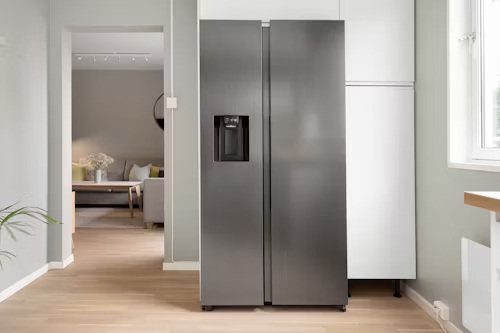Discover how refrigerators transform modern living and everyday convenience
Refrigerators have become one of the most essential household appliances, supporting daily life by ensuring food freshness, extending storage times, and enhancing convenience. They represent a balance of technology, design, and practicality, making them central to how families organize their kitchens and routines. Beyond their functional role, refrigerators also showcase the progress of energy efficiency, smart technology, and thoughtful design in modern appliances. Understanding their features helps individuals make informed decisions about usage, efficiency, and long-term benefits. This article explores the key aspects of refrigerators, from cooling technology and storage design to sustainability and cultural impact, offering a complete overview of their importance in modern society.

The Essential Role of Refrigerators in Daily Life
Refrigerators play a vital role in every household, serving as the foundation of food preservation. They prevent spoilage by maintaining low temperatures that slow bacterial growth. This ensures that fresh produce, dairy products, meat, and beverages remain safe to consume for longer periods. Without refrigeration, modern lifestyles—especially those involving busy schedules—would be far less convenient, as families would need to shop daily for perishable items.
Key Features of Refrigerators
Modern refrigerators come equipped with a wide range of features that enhance usability and performance. Common elements include adjustable shelves, humidity-controlled drawers, and frost-free systems. Advanced models also incorporate digital displays, precise temperature settings, and door alarms. These features contribute to improved food organization, better preservation, and a more user-friendly experience.
Temperature Control and Food Preservation
One of the most important functions of a refrigerator is consistent temperature control. Different compartments within the appliance may be optimized for specific foods—for example, vegetables and fruits often benefit from slightly higher humidity, while meats and dairy require colder settings. Maintaining proper temperatures not only extends food lifespan but also helps retain nutritional value, flavor, and texture.
Energy Efficiency and Environmental Considerations
Refrigerators have evolved significantly in terms of energy consumption. Earlier models consumed high levels of electricity, but modern designs are built to be far more efficient. Energy-efficient refrigerators often carry certifications, such as Energy Star, that indicate reduced electricity usage. This not only lowers household energy bills but also decreases the environmental impact by reducing carbon emissions. Sustainable practices in refrigerator design also include the use of eco-friendly refrigerants that replace harmful chemicals once common in cooling technology.
Design and Storage Innovations
The design of refrigerators has advanced beyond basic cooling functions. Flexible storage options, such as adjustable shelves, multi-zone compartments, and door-in-door systems, make it easier to organize items. Larger capacity models are designed to meet the needs of growing families, while compact models are ideal for smaller spaces such as apartments or dormitories. Aesthetic design has also become important, with stainless steel, matte finishes, and integrated handles complementing modern kitchen décor.
Smart Technology Integration
One of the most exciting developments in refrigeration is the integration of smart technology. Smart refrigerators can connect to home Wi-Fi networks, allowing users to monitor and control settings remotely. Some models include touch screens, inventory management systems, or even cameras inside the fridge that allow users to check contents via smartphone. These innovations provide convenience, help reduce food waste, and align with the broader trend of smart homes.
Health and Safety Benefits
By keeping food at safe storage temperatures, refrigerators help prevent foodborne illnesses. Additionally, modern refrigerators are designed with antibacterial surfaces, odor control systems, and advanced filtration. These features improve hygiene and provide a safer storage environment, which is particularly important for households with children or individuals with sensitive health needs.
Specialized Refrigerator Types
Refrigerators come in many varieties to meet different lifestyle needs. Top-freezer and bottom-freezer models are traditional options, while side-by-side refrigerators offer convenient access to both fresh and frozen foods. French-door refrigerators combine wide storage space with freezer drawers, while mini fridges serve compact spaces. There are also specialized wine coolers and beverage refrigerators that focus on precise temperature and humidity control for specific uses.
Cultural and Social Impact of Refrigerators
The widespread adoption of refrigerators has reshaped global food culture. People can now enjoy a wider variety of fresh foods year-round, regardless of seasonal limitations. Frozen food industries and international food trade have grown significantly because of refrigeration. Culturally, refrigerators have also influenced family routines, as shared meals can be prepared in advance and stored safely, supporting busier lifestyles.
Longevity and Maintenance of Refrigerators
Refrigerators are durable appliances that can last for many years with proper care. Regular cleaning of coils, defrosting when necessary, and maintaining door seals are simple steps that extend lifespan. Technological improvements have also increased reliability, with many modern refrigerators designed to function efficiently for more than a decade. Understanding maintenance not only ensures longevity but also optimizes performance.
Future Trends in Refrigeration
The future of refrigerators is shaped by ongoing technological innovation and sustainability goals. Researchers are exploring advanced cooling systems that require even less energy, while manufacturers experiment with AI-driven smart functions that can suggest recipes based on stored ingredients. Eco-friendly designs that minimize environmental footprint are likely to become more widespread, reflecting consumer demand for greener household appliances.
Conclusion: The Central Role of Refrigerators in Modern Homes
Refrigerators are far more than appliances; they are essential partners in daily life. They ensure food safety, support healthier lifestyles, and align with broader cultural and technological advancements. From energy efficiency and smart technology to design versatility, refrigerators continue to evolve, reflecting the values of convenience, sustainability, and innovation. Understanding their features allows individuals to fully appreciate the impact of refrigeration on modern living.






